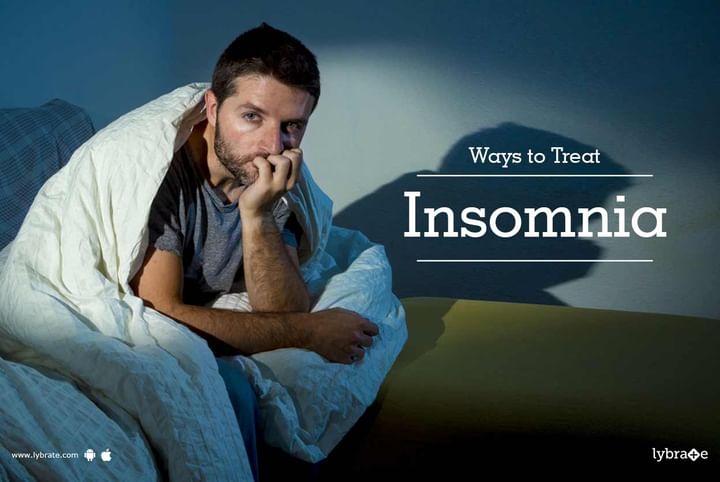Ways to Treat Insomnia
Insomnia is a disorder where a person has difficulty sleeping. One can have problem falling asleep or staying asleep for long. Some people also have disturbed sleep. This can be a major problem as due to lack of sleep one feels tired and fatigued all day.
Recurring cases of insomnia hamper your daily activities and interfere with the smooth functioning of your life. Therefore, this condition should not be ignored and treated immediately.
Here are the various ways to treat insomnia:
Non-Medical (Cognitive and Behavioral treatment)
Several psychological and behavioral techniques can be used for the treatment of insomnia. Many of these methods can be easily self-taught and others require a therapist to be carried out properly.
- Relaxation training, which is also called progressive muscle relaxation involves the patient to tense and relax his muscles systematically in various parts or regions of the body. Relaxation techniques, such as breathing exercises, various forms of meditation, mindfulness and guided imagery are used for treating insomnia people. The use of audio recordings for guidance in these techniques is quite popular.
- Stimulus control enables building an association between the bedroom and sleep. This is done by limiting several kinds of activities done in a bedroom. This may include going to bed only when very sleepy and leaving bed if you cannot sleep within twenty minutes. A strict bedtime and wake up time schedule has to be maintained.
- Cognitive behavioral therapy or CBT involves changes in behavior like maintaining a strict sleep time schedule, elimination of afternoon naps and other habits related to sleep. A cognitive component is also added to this method. Unhealthy beliefs and fear regarding sleep are challenged and positive, rational thinking is encouraged. CBT is a very effective procedure for treating insomnia and the track record regarding success is high.
- Changes in lifestyle are required to treat insomnia and prevent recurrence of insomnia, you should change certain habits and start some new practices. You should limit your intake of caffeine, alcohol and nicotine. Do not consume coffee or tea before going to sleep and avoid smoking. The habits may be stimulating and will keep you awake. Your diet should be balanced. You should avoid having rich and spicy food before going to bed. Avoid late meals and maintain a proper schedule for meals. Regular exercise can improve the symptoms of insomnia and you should try to work out every day.
Medical Treatment: There are many forms of medicines, which can treat insomnia. This includes over-the-counter medicines, as well as prescribed medicines. The type of medicine required completely depends on the severity and symptoms of your insomnia and other factors related to health. Therefore, you must consult a doctor before having any kind of medicine for treating insomnia.
The most common medicines for insomnia, which are usually prescribed by doctors are benzodiazepine hypnotics, non-benzodiazepine hypnotics and melatonin receptor agonists. However, medicines should only be taken after consulting with a specialist. Insomnia not only affects your health but also interferes with all your daily activities. Proper treatment should be taken to treat the same. If you wish to discuss about any specific problem, you can consult a psychiatrist.



+1.svg)
